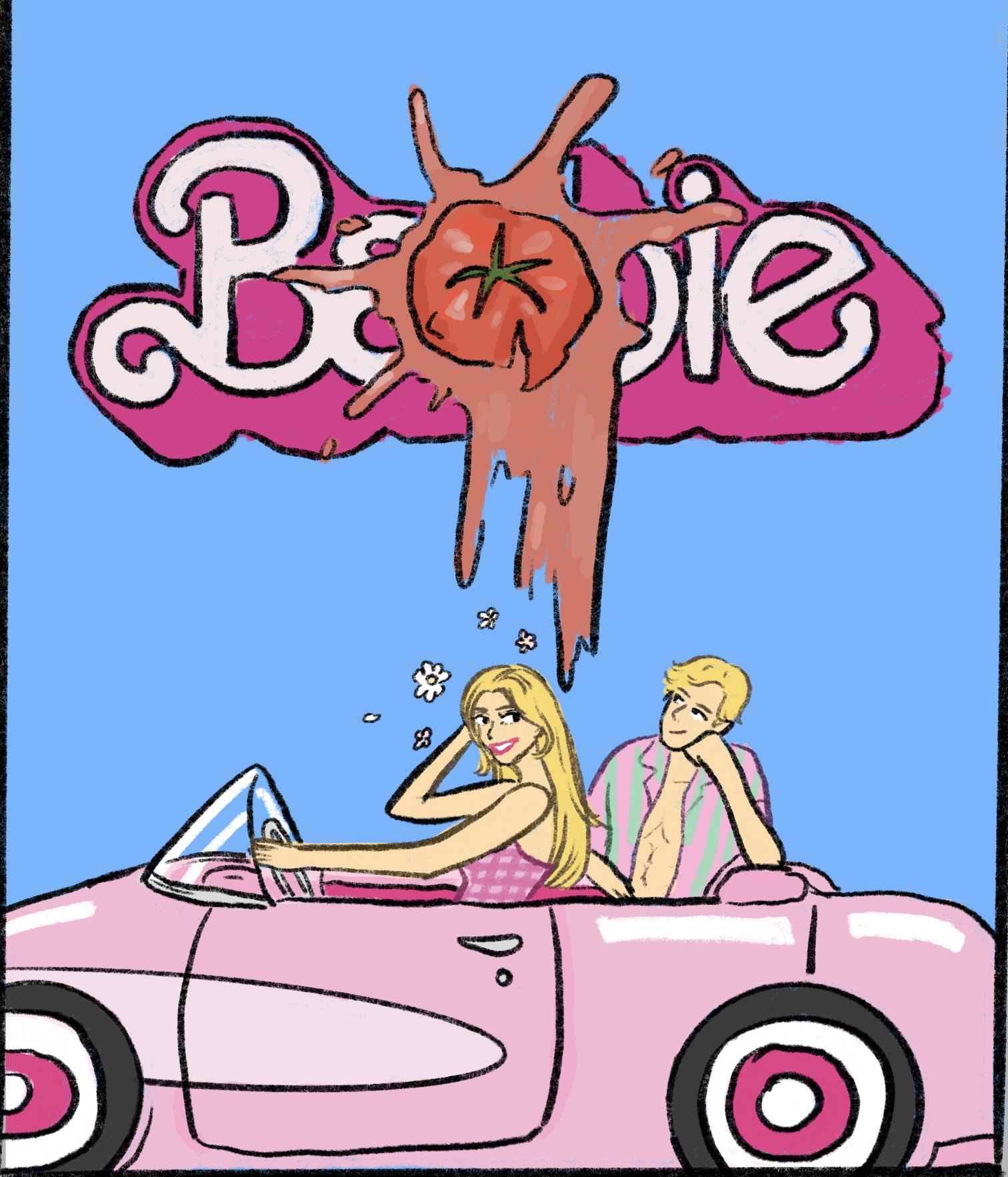Barbenheimer Spread
September, 2023
From memes to style inspiration, it’s been hard to escape “Barbie” (2023) this summer, and for good reason. Though one might not expect much more of the movie than its bright pink hues and sparkles that are heavily featured in its beginning sequences, “Barbie” has a lot more to it. As the film progresses, “Barbie” reveals director Greta Gerwig’s examinations of womanhood and of the role of the patriarchy in today's era.
In Barbieland, each of the Barbies has her own job, from doctor to president, while the Kens are devoted to constantly supporting the Barbies in all that they do. The Barbies believe that this depiction of women in every job imaginable has “solved feminism” in the real world, and they are proud of themselves for helping women realize their capabilities. But their female empowerment has its limits, as the Barbies shun all imperfections. They are terrified of being any less than perfect and becoming like the Barbie they call “Weird Barbie,” who became damaged after being played with too hard. She is a horror story to the Barbies, and when the stereotypical Barbie (played by Margot Robbie) starts noticing defects in herself, she’s willing to do anything to revert back to her perfect life and avoid ending up like Weird Barbie.
When her journey takes her to the real world, she discovers that the lives of most human women don’t contain any of the dream houses and dance parties of hers. An impassioned speech by Gloria (played by America Ferrera), a woman in the real world, sheds light on the impossible standards women constantly face. Even Barbie can’t fulfill the ideal of a perfect, accomplished, and flawless woman that women in the real world are forced to contend with. The main goal of “Barbie” is to expose how difficult it is to be a woman in a society full of contradictory expectations. As Gloria says, “You have to be thin, but not too thin. And you can never say you want to be thin. You have to say you want to be healthy, but also you have to be thin.” In her powerful monologue, Gloria shows how hard it is to be the “perfect woman” when you’re only human. Though the Barbie doll is known for her unattainable body and enforcement of stereotypes about women, the movie itself takes a contrasting point of view, arguing for the acceptance and embracement of human flaws. This message isn’t exactly original or ground-breaking, but it is more than you would expect from a movie about Barbie, and it does the important job of giving a spotlight to many feminist issues. Its message of acceptance, along with a poppy soundtrack, humorous script, and stylish costumes, is enough to make any viewer feel good walking out of the theater.
Additionally, the film demonstrates how the patriarchal system is detrimental not only to women, but also to men. Ken (played by Ryan Gosling), once considered merely Barbie's accessory, embarks on a transformative adventure that exposes the insidious nature of objectification. As he ventures into a fiercely competitive and toxic male environment, Ken finds himself surrounded by a culture that objectifies women, reducing them to mere commodities. This environment, unfortunately, thrives on the possession of these objectified women, equating sexism with masculinity. However, it's only once Ken has a profound realization that he is "Kenough," independent of societal expectations, that he breaks free from this toxic masculine paradigm. His journey serves as a powerful reminder that, along with perpetuating misogyny, the patriarchy also negatively impacts men, trapping them in a never-ending cycle of insecurity and unhealthy competition. "Barbie" masterfully explores these themes, offering audiences a thought-provoking narrative that encourages us all to challenge and dismantle harmful societal norms.
“Barbie” (2023) takes responsibility for all that the brand has projected onto women in years past; while the original Barbie represented a woman can do everything herself (something that, at the time of the original Barbie’s release, wasn’t common), they also created a woman with no imperfections, something which is not ever attainable in real life. The film also highlights how our world’s patriarchal society encourages men to objectify women, but how the Kens have always been the opposite, craving Barbie’s approval. Though the movie finds a happy medium in Barbie world, leading the Kens to accept themselves as individuals and letting the Barbies accept their imperfections, it doesn’t actually provide a clear-cut solution to misogyny, mostly because there hasn’t been one yet. Instead, it focuses on how impossible we’ve made it for women to be respected for who they are, and it encourages women and men alike to reject these societal expectations. Our world isn’t made of plastic, and we shouldn’t model it as such.